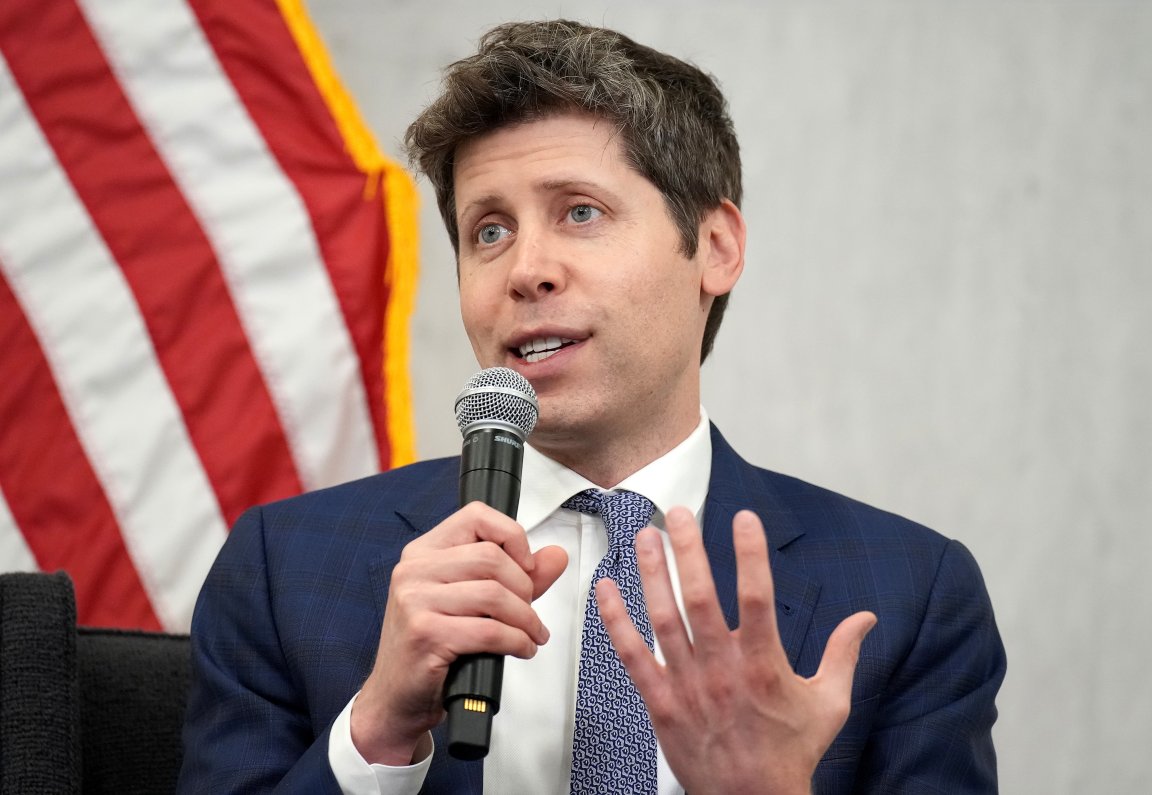
It’s official: OpenAI is now a bona fide for-profit corporation.
On Tuesday, the ChatGPT maker announced that it had restructured its for-profit arm into a public benefit corporation, a type of corporate entity whose ostensible mission is to serve the public good while — crucially — generating loads of profit.
The move completes the company’s metamorphosis: from its origins as a nonprofit devoted to developing open source AI technology for the betterment of humankind to the closed-source, profit-seeking juggernaut that it is today, with its staggering half-trillion dollar valuation reflecting the ominously outsized influence it has on the global economy.
The company’s nonprofit arm, now called the “OpenAI Foundation,” will remain in control of the for-profit arm, rebranded OpenAI Group PBC. But as part of the restructuring, the nonprofit will receive a 26 percent stake in the public benefit corporation equal to $130 billion. Down the line, this also allows OpenAI to list itself on the stock market, generating an even more immense valuation than it currently enjoys.
The restructuring has been over a year and a half in the making, with OpenAI’s longtime patron Microsoft — as well as its rival Elon Musk, who helped cofound OpenAI with CEO Sam Altman before departing the company in 2018 — majorly complicating OpenAI’s conversion.
Originally, OpenAI wanted to usurp its nonprofit from the throne and put its for-profit arm in charge of the entire company. It abandoned these plans in May, however, amid a lawsuit from Musk which tried to block the move, accusing the company of betraying its founding mission of pursuing AI for the benefit of humanity.
Microsoft, meanwhile, had backed OpenAI with billions of dollars in crucial funding, and as a result earned exclusive rights to OpenAI’s intellectual property and software, as well as an agreement to share revenue. It didn’t want to lose these privileges in a restructuring without getting an even bigger stake in the company.
One of the biggest points of contention was artificial general intelligence, or AGI, a hypothetical AI system that surpasses human cognition in virtually all areas. The old deal between Microsoft and OpenAI contained a vaguely worded “AGI clause” stipulating that if OpenAI achieved AGI, Microsoft would lose exclusive rights to the startup’s tech. Microsoft saw this as a huge liability, while OpenAI saw it as an indispensable failsafe against its powerful benefactor.
With the conversion to a public benefit corporation, these issues have been put to bed, at least for the time being. In its own announcement, Microsoft said it will keep its access to OpenAI’s tech if it ever achieves AGI — so long as it has “appropriate safety guardrails” — and that any declaration of achieving AGI will “now be verified by an independent expert panel,” as The Verge noted. The revenue sharing will continue until the expert panel confirms AGI, and in the meantime Microsoft gets to pursue building AGI on its own, and have a 27 percent stake in the new PBC, which is one percent more than OpenAI’s nonprofit holds.
But the biggest source of relief for OpenAI concerns its enormous investment from Softbank. The Japanese conglomerate agreed to shovel $30 billion into OpenAI, but only if it completed its restructuring by the end of year. If not, it would’ve withheld about $10 billion of its pledged investment, funds that OpenAI simply can’t afford to squander as it tangles itself in a web of centibillion-dollar deals with money flowing in all directions — including a just announced deal to buy $250 billion worth of Microsoft’s Azure cloud computing service — not to mention its struggle to actually turn a profit.
Technically, the nonprofit arm remains in control of the company, but it’s extremely doubtful that it will play anything more than a ceremonial role with the profit-making arm unleashed to raise more capital than ever. OpenAI can call itself a “public benefit” entity, but it hasn’t shown much regard for the benefit of humanity with its environmentally destructive data centers or its psychologically damaging tech.
More on OpenAI: Serious New Hack Discovered Against OpenAI’s New AI Browser